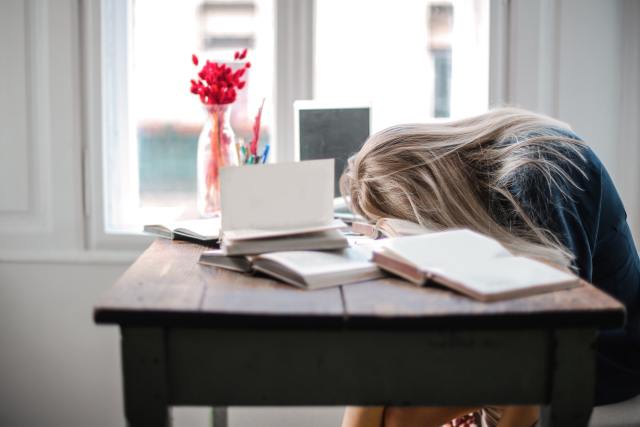It’s that time of year again: finals season. While the days are getting shorter, they simultaneously feel much longer, with us students spending practically every waking moment studying, stressing, or both. Our social lives are more nonexistent than ever during finals, because there’s just too much to get done, and we reconsider why we even chose to go to college in the first place (or maybe that’s just me — whoops). But regardless of your workload and anxiety levels, we can all agree that there’s never enough time in the day to get everything done.
Plus, for those of us who are still sitting in lectures every day, trying to grasp as much knowledge as we can in order to pass our finals, it can be difficult to retain mountains of new information. Especially while our minds are preoccupied, thinking about deadlines and other classes. Not to mention, when my phone is right there, I’m gonna opt for checking Instagram instead of listening to my professor talk. It’s not easy to put all of our distractions at rest and just listen for an hour at a time.
Well, for those who love naps and hate listening to lectures, boy, do I have a life hack for you! I know it sounds ridiculous, but you can — and should — listen to your lectures while you’re sleeping. Simply recording your lectures, or listening to the ones your professor uploaded, and playing them back while you take a nap or sleep for the night is more beneficial than you might think; it can actually be an effective way to study without even knowing it.

But don’t just take my word for it. Science actually shows that listening to your lectures while you’re sleeping actually works — as in, it’s not just recommended for those who want to use their professor’s speaking voice as ASMR. As much as it doesn’t seem like it, our brains work *very* hard while we’re sleeping; as we rest, our brains are busy fulfilling so many tasks we don’t even notice, like synthesizing memories, for one. And although it’s impossible to, for example, fall asleep not knowing a language and wake up fluent, those eight hours a day can actually be prime study time.
The concept of sleep-learning, also known as “hypnopaedia,” has been widely researched, studied, and debated by scientists. Although there is much we still don’t know about what happens to us when we sleep, several recent studies have proven that hypnopaedia is more than just a theory. One 2017 study published in the Nature Communications journal found that people were able to learn new acoustic lessons while they slept — proving that our brains are receptive to new memories while we sleep. Another study, conducted in 2014 in Israel, found that exposure to foul cigarette smells while sleeping can combat cigarette addiction. So basically, sleep is more valuable than meets the eye — especially for college students trying to cram a semester’s worth of material into a few weeks.
I know what you’re thinking: This seems too good to be true. But don’t think this means you can become exam-ready without opening a textbook or reviewing your notes. As much as our brains are impressive and this would be ideal, we aren’t that advanced quite yet; some scientists still debate the theory of hypnopaedia. The point here is: Don’t underestimate the power of sleep! Getting those hours in is essential for your memory, and if you want to take it a step further, playing a lecture or two while you drift off to sleep for the night is a worthwhile idea. After you do some actual studying, OFC.
So, the next time you’re dying for a nap and can’t concentrate on reviewing for finals, you’ve got a perfect solution: Take what I now call a “study nap.” If this isn’t killing two birds with one stone, and a miracle cure for my constant fatigue during exam season, I don’t know what is.
Happy studying, besties — you’ve got this!


